
Masahiro Andō is a Japanese composer and guitarist from Chikusa-ku, Nagoya, Aichi Prefecture, Japan. From 1976 to 2021, he was the guitarist and leader of the Japanese jazz-fusion band T-Square. He was also one-third of Ottottrio, a supergroup led by three Japanese guitarists: himself, Hirokuni Korekata of KORENOS and Issei Noro of Casiopea.
Ottottrio are a Japanese jazz fusion band.
The Mathematical Society of Japan is a learned society for mathematics in Japan.

T-Square, stylized in all-uppercase T-SQUARE, is a Japanese jazz fusion band formed in 1976. They became famous in the late 1970s and early 1980s along with other Japanese jazz bands. They are known for songs such as "Truth", "Japanese Soul Brothers", "Takarajima", "Omens of Love", among others.

Lucky Summer Lady is the debut studio album by the Japanese jazz fusion group T-Square, who were then known as The Square. It was released on September 21, 1978.
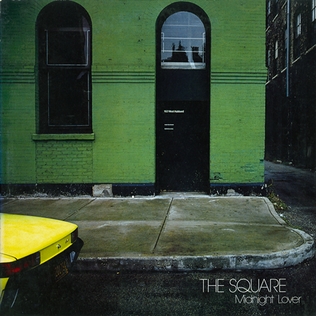
Midnight Lover is the second studio album of the Japanese jazz fusion group T-Square, who were then known as The Square. It was released on December 21, 1978.
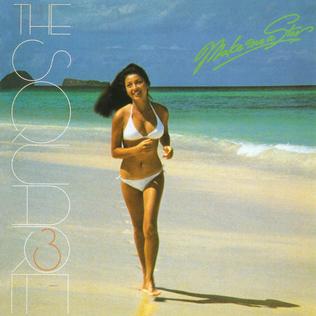
Make Me A Star is the third album by Japanese jazz fusion band "The Square", recorded and released in 1979. This is also the first album on which saxophonist Takeshi Itoh used the Lyricon.
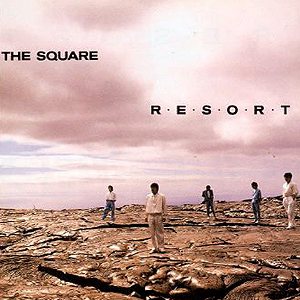
R.E.S.O.R.T. is the tenth studio album by Japanese Jazz fusion band T-Square, who was then called The Square. It was released on April 1, 1985 under Columbia Records. This was the last studio album with drummer Tohru Hasebe, who would leave the band after the tour. Hiroyuki Noritake would replace him in the next album. The album has also been released on Laserdisc.

Rockoon is the fourth studio album by Japanese Jazz fusion band T-Square. It was released on April 1, 1980.
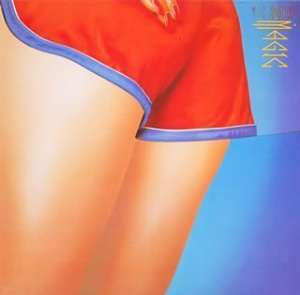
Magic is the fifth studio album by Japanese Jazz fusion band T-Square, who were then known as The Square. It was released on November 1, 1981.

The Water of the Rainbow is the seventh studio album by Japanese jazz fusion band T-Square, who was then known as The Square. It was released on May 21, 1983.

Adventures is the eighth studio album by Japanese jazz fusion band T-Square, then known as the Square. It was released on April 1, 1984.

S.P.O.R.T.S. is the eleventh studio album by Japanese Jazz fusion band T-Square, who was then known as The Square. It was released on March 5, 1986. This album is the first appearance of one of their most popular songs, Takarajima, composed by Hirotaka Izumi, and is also the first studio appearance of first long-term drummer, Hiroyuki Noritake. Bassist Toyoyuki Tanaka later left the band after this album's tour, and would be replaced by Mitsuru Sutoh starting from the next album Truth.

Truth is the twelfth studio album by Japanese Jazz fusion band T-Square, who was then known as The Square. It was released on April 1, 1987. The title track is remembered in Japan as the main theme to Fuji TV's Formula One broadcasts from 1987 to 1998.

Yes, No is the thirteenth studio album by Japanese Jazz fusion band T-Square. It was released on February 26, 1988 through Columbia Records and was the last studio album by the band released under the name The Square.

Natural is the fifteenth studio album by Japanese Jazz fusion band T-Square. It was released on April 21, 1990. It was the last to feature Takeshi Itoh on saxophone and EWI, during his initial run with the band. He returned to T-Square in mid-2000 and has been performing with the group ever since.

New-S is the sixteenth studio album by Japanese Jazz fusion band T-Square, released in 1991. This album marks the introduction of saxophonist Masato Honda to the band, after Takeshi Itoh left the group.

Masato Honda, is a Japanese saxophone player, composer, and multi-instrumentalist. Born in Nakamura City, Kochi Prefecture, he graduated from Kunitachi College of Music. He is most well known for being a member of the band T-Square and appearing on Cowboy Bebop's soundtrack with The Seatbelts.
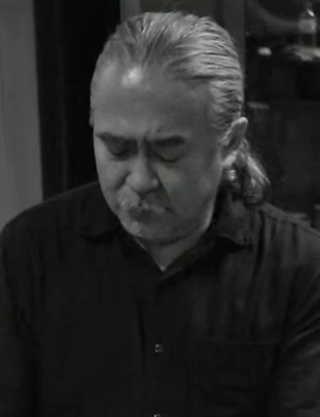
Hirotaka Izumi was a Japanese keyboardist, pianist, and composer who was a former member of the jazz fusion band T-Square. Besides T-Square, he was also active in the bands Pyramid (ピラミッド) and Voyage (ヴォヤージュ).

Hiroyuki Noritake is a Japanese jazz fusion drummer and a lecturer at the Showa Academia Musicae.


















